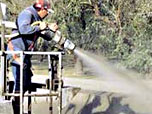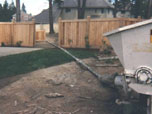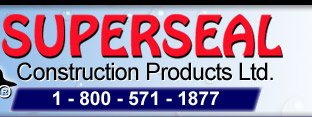| Page
1 Page
2 Page
3 Page
4 Page
5 Page
6 |
 Click
to go to page 1 Click
to go to page 1
to learn about Shotcrete
Click to go to page 2
to learn about Gunite
Click to go to page 3
to learn about Gunite Pools & Shotcrete Pools
Click to go to page 4
for Slope Stabilization & Erosion Control
Click to go to page 5
for Channel Tunnel Building & Underground Tunnel Construction
Click to go to page 6
to learn about Monolithic Dome Homes
|
What is Shotcrete? |
 |
What is Shotcrete or structural concrete? Shotcrete is a process where concrete is sprayed onto a surface using a Shotcrete feeder gun to form structures such as walls, floors and roofs. Once the Shotcrete has been applied to a surface, be it wood, steel, polystyrene or a Shotcrete drainage structure such as  Dimpled Mesh and Tunnel Drainage or any other surface that concrete can be projected onto. A Shotcrete contractor can trowel smooth or form the Shotcrete for texture while it is still wet. Once cured the hardened properties of Shotcrete are very similar to typical cast-in-place concrete. Dimpled Mesh and Tunnel Drainage or any other surface that concrete can be projected onto. A Shotcrete contractor can trowel smooth or form the Shotcrete for texture while it is still wet. Once cured the hardened properties of Shotcrete are very similar to typical cast-in-place concrete.
|

|
|
Benefits of Shotcrete |
 |
Just some of the benefits of Shotcrete are
- It has a high strength factor
- Lasting durability
- Easy to apply
- Low permeability
- Excellent bonding properties
- Unlimited possibilities for shape and design
Due to the countless benefits of Shotcrete, in most cases it can be used as a structural material.
|
Shotcrete Equipment & Tools |
 |
You will require some of the following tools to apply or install Shotcrete:
- A small Shotcrete pump
- A spray Hose and nozzle for the Shotcrete
- A safety equipment when applying Shotcrete
|
 |
|
You can also use Shotcrete accelerator to provide rapid setting and hardening. Shotcrete accelerator allows the loading of weight to the Shotcrete at an early stage. In addition, when using Shotcrete accelerator in underground structures, using the Shotcrete accelerator to reduce the strengthening time can help protect the rock surface from the dynamic loading effects of rock displacement or blasting stresses.
|
|
The Application of Shotcrete |
 |
The easy application of Shotcrete can be used to create complex forms or shapes such as:
- Monolithic Homes
- Bank Stabilization
- Tunnel construction
- Low permeability
- Pools
- Underground excavations
- Underground Channels
- Spillway surfaces
- Marine structures
|
Types of Shotcrete |
 |
Shotcrete can be applied one of 2 ways, as a wet mix or as a dry mix.
- For the Shotcrete wet mix method, all ingredients used to make Shotcrete are premixed and the sprayed onto the surface.
- For the Shotcrete dry mix method, the dry or damp materials are pre mixed (including the Shotcrete accelerator if required), without water, and then are sprayed though the hose. Once the dry materials reach the nozzle they are joined by water. The dry materials and water create the final Shotcrete mix once it hits the receiving surface
|
Mixing Shotcrete Specifics |
 |
|
Mix design and control are critical to the success of Shotcrete. The specified mix should meet the requirements for both initial and final support. A typical Shotcrete mix contains approximately 30 percent cementious material and 70 percent sand and aggregate. Ensure both materials are well graded and screened as just one rock can clog and disable a Shotcrete hose or worse, bring your entire operation to a screeching halt.
Ensure your Shotcrete slump has modified depending on the needs of the working conditions. The Shotcrete mix will normally be pumped into a 2 inch Shotcrete hose. The Shotcrete hose can be sprayed hand held or with a robotic arm system. A properly operating Shotcrete pumping system should be able to cover 15-25 cubic yards per hour.
|



For more info on Shotcrete
click next
|
|
|



